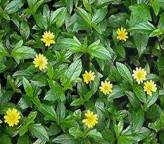Determination of Phenolics, Antioxidant Activity and Antidiabetic Potential of Sphagneticola calendulacea (L.) Pruski Leaves Grown in Vietnam http://www.doi.org/10.26538/tjnpr/v7i5.22
Main Article Content
Abstract
Sphagneticola calendulacea (L.) Pruski, a member of the Asteraceae family, is commonly found growing in India, Sri Lanka, China, and Southeast Asian countries. It has been utilized in traditional medicine for treating various illnesses in many Asian nations. The objective of this research was to compare the phenolic content, antioxidant activity, and inhibitory effect on - glucosidase of S. calendulacea leaf extracts obtained through conventional solvent, ultrasound, and enzyme-assisted methods. Eight phenolic compounds were quantified in the extracts, and the results revealed that the methanol extract comprised the greatest amount of phenolic compounds (228.10 g/ml) in comparison with the other extracts. The extract from the ultrasound method exhibited the highest ABTS (2,2′-azino-bis(3-ethylbenzothiazoline-6-sulfonic acid)) antioxidant activity. The ethanol extract presented the strongest inhibition of -glucosidase. Generally, the applications of ultrasound and enzyme to extraction helped enhance phenolic content and bioactivities of the resulting extracts. These findings give a deeper insight into the phenolics and health endorsing activities of S. calendulacea leaves, which is beneficial for the development of new drugs for disease prevention and treatment.
Downloads
Article Details

This work is licensed under a Creative Commons Attribution-NonCommercial-NoDerivatives 4.0 International License.
References
The World Flora Online. Sphagneticola calendulacea (L.) Pruski. 2023; Available from: http://www.worldfloraonline.org/taxon/wfo-0000072506. Accessed 2023 January 30.
Meena AK, Rao MM, Meena RP, and Panda P. Pharmacological and phytochemical evidences for the plants of Wedelia Genus–A Review. Asian J Pharm Res. 2011; 1(1):7-12.
Darah I, Lim SH, and Nithianantham K. Effects of methanol extract of Wedelia chinensis Osbeck (Asteraceae) leaves against pathogenic bacteria with emphasise on Bacillus cereus. Indian J Pharm Sci. 2013; 75(5):533.
Kumar MR, Teelavath M, and Yellanki SK. Development and evaluation of polyherbal emulgel formulation (A preventive hair care preparation). Int J Herb Med. 2019; 7(1):08-10.
Koul S, Pandurangan A, and Khosa RL. Wedelia chinenis (Asteraceae)–an overview. Asian Pac J Trop Biomed. 2012; 2(2):S1169-S1175
Manjamalai A and Grace VM. Antioxidant activity of essential oils from Wedelia chinensis (Osbeck) in vitro and in vivo lung cancer bearing C57BL/6 mice. Asian Pac J Cancer Prev. 2012; 13(7):3065-3071.
Huang Y-T, Wen C-C, Chen Y-H, Huang W-C, Huang L-T, Lin W-C, Arulselvan P, Liao J-W, Lin S-H, and Hsiao P-W. Dietary uptake of Wedelia chinensis extract attenuates dextran sulfate sodium-induced colitis in mice. PLoS One. 2013; 8(5):e64152.
Bari M, Islam M, Khatun M, Sultana MJ, Ahmed R, Islam A, Hossain M, Rahman M, and Islam MA. Antidiabetic effect of Wedelia chinensis leaf extract in alloxan induced Swiss albino diabetic mice. Clin Phytosci. 2020; 6(1):1-8.
Chen L-J, Hsu T-C, Yeh P-J, Yow JL, Chang C-L, Lin C-H, and Tzang B-S. Differential Effects of Wedelia chinensis on Human Glioblastoma Multiforme Cells. Integr Cancer Ther. 2021; 2015347354211000119.
Tsai Y-T, Chen P-Y, and To K-Y. Induction of polyploidy and metabolic profiling in the medicinal herb Wedelia chinensis. Plants. 2021; 10(6):1232.
Lin F-M, Chen L-R, Lin E-H, Ke F-C, Chen H-Y, Tsai M-J, and Hsiao P-W. Compounds from Wedelia chinensis synergistically suppress androgen activity and growth in prostate cancer cells. Carcinogenesis. 2007; 28(12):2521- 2529.
Islam MA, Zaman S, Biswas K, Al-Amin MY, Hasan MK, Alam A, Tanaka T, and Sadik G. Evaluation of cholinesterase inhibitory and antioxidant activity of Wedelia chinensis and isolation of apigenin as an active compound. BMC Complement Altern Med. 2021; 21:1-12.
Thao NP, Binh PT, Luyen NT, Hung TM, Dang NH, and Dat NT. α-Amylase and α-glucosidase inhibitory activities of chemical constituents from Wedelia chinensis (Osbeck.) Merr. leaves. J Anal Methods Chem. 2018; 2018: 2794904.
Okolie NP, Falodun A, and Davids O. Evaluation of the antioxidant activity of root extract of pepper fruit (Dennetia tripetala), and it’s potential for the inhibition of lipid peroxidation. Afr J Tradit Complement Altern Med. 2014; 11(3):221-227.
Egharevba E, Chukwuemeke-Nwani P, Eboh U, Okoye E, Bolanle IO, Oseghale IO, Imieje VO, Erharuyi O, and Falodun A. Evaluation of the antioxidant and hypoglycaemic potentials of the leaf extracts of Stachytarphyta jamaicensis (Verbenaceae). Trop J Nat Prod Res. 2019; 3(5):170-174.
Verma A, Singh D, Anwar F, Bhatt PC, Al-Abbasi F, and Kumar V. Triterpenoids principle of Wedelia calendulacea attenuated diethynitrosamine-induced hepatocellular carcinoma via down-regulating oxidative stress, inflammation and pathology via NF-kB pathway.
Inflammopharmacology. 2018; 26:133-146.
Prakash T and Janadri S. Anti-inflammatory effect of wedelolactone on DSS induced colitis in rats: IL-6/STAT3 signaling pathway. J Ayurveda Integr Med. 2022; 100544. In press. https://doi.org/10.1016/j.jaim.2022.100544.
Institute of Traditional Medicine Research and Development (Viện Y Dược Cổ Truyền Dân Tộc). Cây Sài Đất. 2023; Available from: https://vienyduocdantoc.org.vn/duoclieu/cay-sai-dat. Accessed 2023 January 30.
Van Hung P, Yen Nhi NH, Ting LY, and Lan Phi NT. Chemical composition and biological activities of extracts from pomelo peel by-products under enzyme and ultrasoundassisted extractions. J Chem. 2020; 2020:1-7.
Vu D. Assessing the Differences in Phenolics, Antioxidant and Anti-Tyrosinase Activities of Spent Coffee Ground Fractions. Trop J Nat Prod Res. 2022; 6(4):558-562.
Vu D. Effects of extraction solvents on phytochemicals and bioactivities of Ganoderma lucidum. Egypt J Chem. 2023. In press.
https://doi.org/10.21608/EJCHEM.2023.172356.7142.
Vu D, Nguyen T, and Vo XT. Influence of Green Solvent Extraction on phytochemicals, Potential Antidiabetic and In Vitro Anti-Inflammatory Activities of Pseuderanthemum palatiferum (Nees.) Radlk. Leaves. Trop J Nat Prod Res. 2023; 7(1):2215-2219.
Zhang Y-G, Kan H, Chen S-X, Thakur K, Wang S, Zhang JG, Shang Y-F, and Wei Z-J. Comparison of phenolic compounds extracted from Diaphragma juglandis fructus, walnut pellicle, and flowers of Juglans regia using methanol, ultrasonic wave, and enzyme assisted-extraction. Food Chem. 2020; 321:126672.
Bari MW, Islam A, Islam MM, Sultana MJ, Afroz R, Khan MMR, Parul SS, Swaraz AM, Hossain MI, and Islam MA. Determination of in vitro antioxidant activity and in vivo antineoplastic effects against Ehrlich ascites carcinoma of methanolic extract of Sphagneticola calendulacea (L.)
Pruski. Heliyon. 2021; 7(6):e07228.


